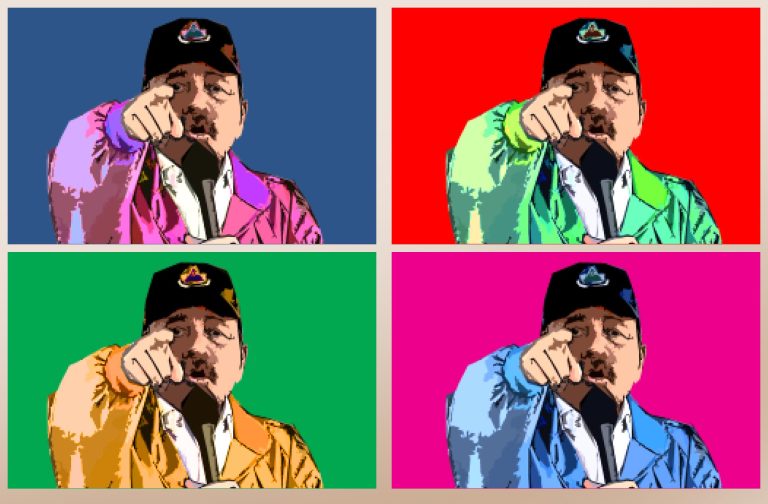13 de noviembre 2021

Ortega Grants Chinese Company a Huge Mining Concession

PUBLICIDAD 1M
PUBLICIDAD 4D
PUBLICIDAD 5D
Ortega and Murillo’s behavior personified the electoral tactics of the great Latin American authoritarian figures since the nineteenth century.

Recent events in Nicaragua reflect the philosophy of the new authoritarianism in Latin America and the Caribbean. The government of Daniel Ortega and his wife Rosario Murillo ordered the imprisonment of over thirty political opponents; then, with no other contenders, they organized a voting process in which they were reelected with 75% of the votes.
More than an election, it was a self-election. Ortega and Murillo personified the electoral victories staged by Latin American authoritarians since the nineteenth century. With the opposition muzzled, the electoral system could display itself as fair and respectful of the contest’s technical procedures. The anticipatory exclusion assured the absence of alternative leaders and programs that could guarantee a competitive election.
How can such a distortion of democracy be legitimized? You can read the results in the official Nicaraguan media, and also in that of Venezuela and Cuba, its two main ideological and geopolitical allies. These media outlets, especially Telesur and Granma, are affirming that that Nicaragua held elections under attack from the United States. In such conditions, they claim, the limitations on political rights were justified for reasons of national security.
Nicolas Maduro declared: “Nicaragua has people who defend it,” asserting that those governments of the region that have refused to recognize Ortega and Murillo’s reelection are “cowards”. What’s certain is that the rejection of permanent reelection remains strong in Latin America and the Caribbean, despite the fact that some governments issued public pronouncements while others didn’t.
Put another way, the constitutional changes enacted in Nicaragua and Venezuela to allow indefinite terms in office is viewed as a necessity by governments that maintain diplomatic differences with the United States and have suffered economic sanctions from Washington. Those sanctions, from the European Union as well as the United States, in turn stem from the adoption of authoritarian mechanisms such as indefinite reelection itself.
Thus, authoritarianism generates sanctions, which in turn are used to justify authoritarianism. The drift is so circular and predictable that manuals and road maps could be written for this new style of Latin American authoritarianism. Such guides could lay out point by point the complementary relationship between international conflicts with the US and Europe, and political regimes based on limiting the rights of those opposing them.
With their indefinite reelection, Ortega and Murillo have made a rational choice to follow the route of pressuring through isolation. The tension with Washington will earn them the temporary backing of the United States’ geopolitical rivals, such as Russia and China. It will also allow them to appeal to Latin America’s democratic leftist regimes, such as Argentina and Mexico, whose diplomatic positions are caught in the dilemma of trying to distance themselves from Ortega’s authoritarianism without backing the US sanctions.
This article was published in Spanish in Confidencial and translated by Havana Times. The Article was originally published in La Razón.
Archivado como:
PUBLICIDAD 3M
Historiador y ensayista cubano, residente en México. Es licenciado en Filosofía y doctor en Historia. Profesor e investigador del Centro de Investigación y Docencia Económicas (CIDE) de la Ciudad de México y profesor visitante en las universidades de Princeton, Yale, Columbia y Austin. Es autor de más de veinte libros sobre América Latina, México y Cuba.
PUBLICIDAD 3D